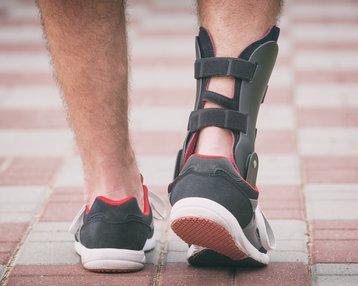New approaches in physiotherapy research give hope for more safety and quality of life for those affected.

It often starts inconspicuously: the foot drags, walking becomes arduous, the risk of falling grows. However, this so-called foot drop palsy often hides a serious neurological disease such as stroke or multiple sclerosis – conditions that affect millions of people worldwide.
This is exactly where Ann-Sophie Leibfarth, a student of the "Physiotherapy" programme at the Stuttgart campus of SRH University, comes in. As part of her bachelor's thesis, she developed an assessment protocol under the direction of Prof. Dr. Claudia Barthel and in collaboration with Anja Langenbacher from the SRH Gesundheitszentrum Waldbronn. This is intended to help improve the care of patients with foot drop orthoses. Because so far there has been a lack of clear standards. Whether an orthosis is prescribed usually depends on the personal judgment of individual therapists. The result: large differences in treatment and patients who do not always receive the support they urgently need.
Leibfarth wants to change that with her work. The goal: to create a fair, objective and uniform basis so that those affected can receive the right care more quickly. And she clears up a persistent prejudice: orthoses do not weaken the muscles. On the contrary – studies show that they can improve balance, mobility and quality of life.
We are pleased that research is carried out in such a practical way at our Stuttgart campus. By taking up this topic, an important social benefit is created and research will make a significant contribution to many people being able to stand more safely on their feet again!








